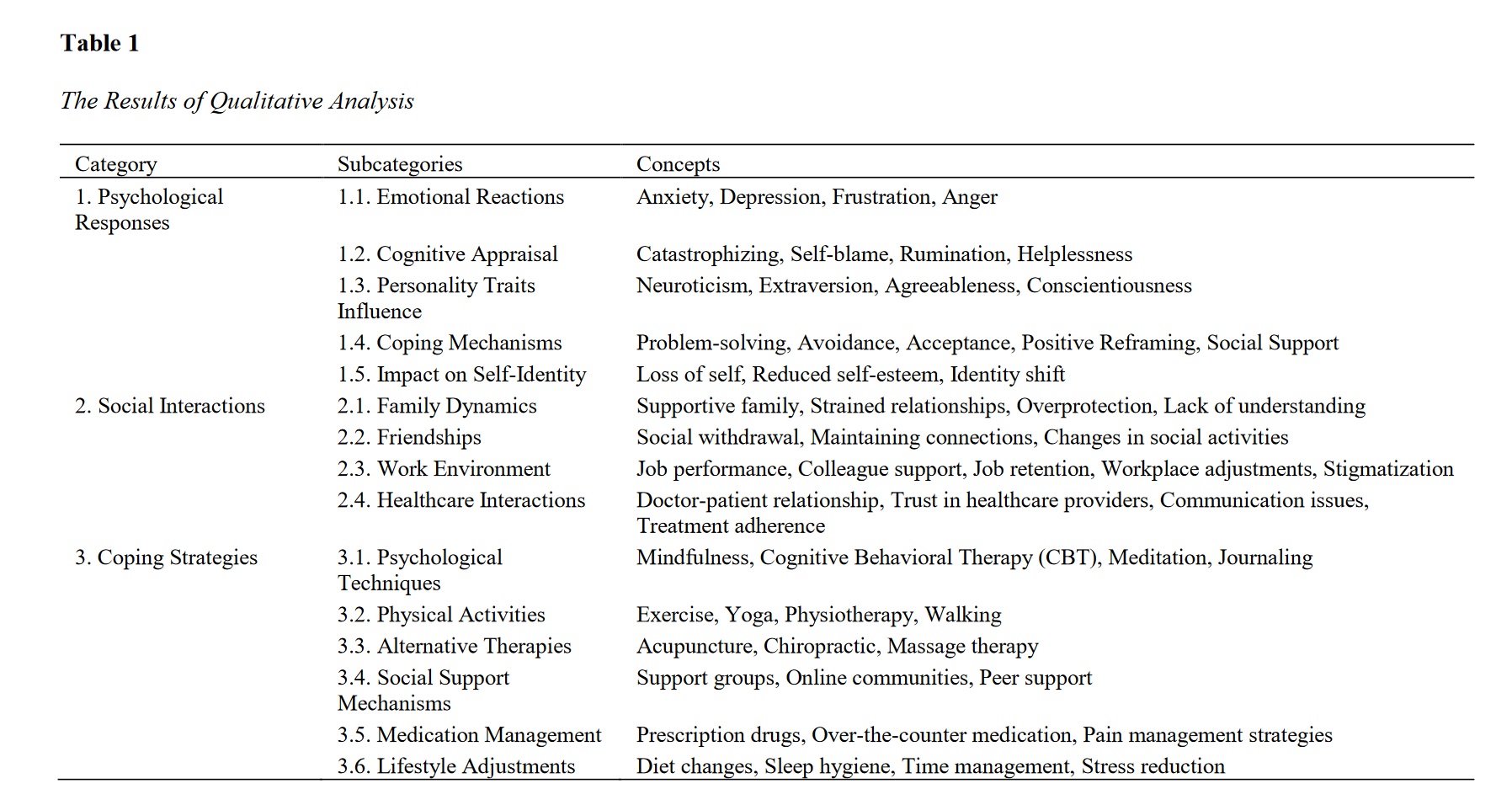Mind-Body Interactions in Chronic Pain Sufferers: A Qualitative Study on Personality Factors
Keywords:
Chronic pain, mind-body interactions, personality factors, qualitative study, coping strategies, psychological responses, social interactions, pain managementAbstract
The objective of this study was to explore the mind-body interactions in chronic pain sufferers, with a particular focus on the role of personality factors. The aim was to gain in-depth insights into how psychological traits influence pain perception, coping mechanisms, and overall pain management. This qualitative study employed semi-structured interviews with 20 participants diagnosed with chronic pain conditions, including fibromyalgia, chronic back pain, and rheumatoid arthritis. Participants were recruited through purposive sampling to ensure diverse experiences. Data were collected until theoretical saturation was achieved. The interviews were transcribed verbatim and analyzed using thematic analysis, facilitated by NVivo software, to identify key themes and patterns related to psychological responses, social interactions, and coping strategies. The analysis revealed three primary themes: psychological responses, social interactions, and coping strategies. Emotional reactions such as anxiety, depression, and frustration were prevalent among participants, with 80% (16 out of 20) reporting significant emotional distress. Cognitive appraisals, including catastrophizing and self-blame, were identified in 70% (14 out of 20) of the interviews. Personality traits such as neuroticism and conscientiousness significantly influenced pain experiences. Social interactions highlighted the importance of family support, with 60% (12 out of 20) indicating strained relationships exacerbated their pain. Various coping strategies were employed, including psychological techniques (used by 50%, 10 out of 20), physical activities (45%, 9 out of 20), and alternative therapies (35%, 7 out of 20). Psychological responses, social dynamics, and diverse coping strategies were crucial in managing chronic pain. The findings suggest the need for a holistic approach to pain management that integrates psychological and physiological dimensions. Personalized treatment plans considering personality traits and incorporating mind-body therapies could enhance pain management outcomes and improve the quality of life for chronic pain sufferers.
Downloads

Downloads
Additional Files
Published
Issue
Section
License
Copyright (c) 2024 Ali Aghaziarati (Corresponding Author); Hu Jun, Guang-Song Dai (Author)

This work is licensed under a Creative Commons Attribution-NonCommercial 4.0 International License.






